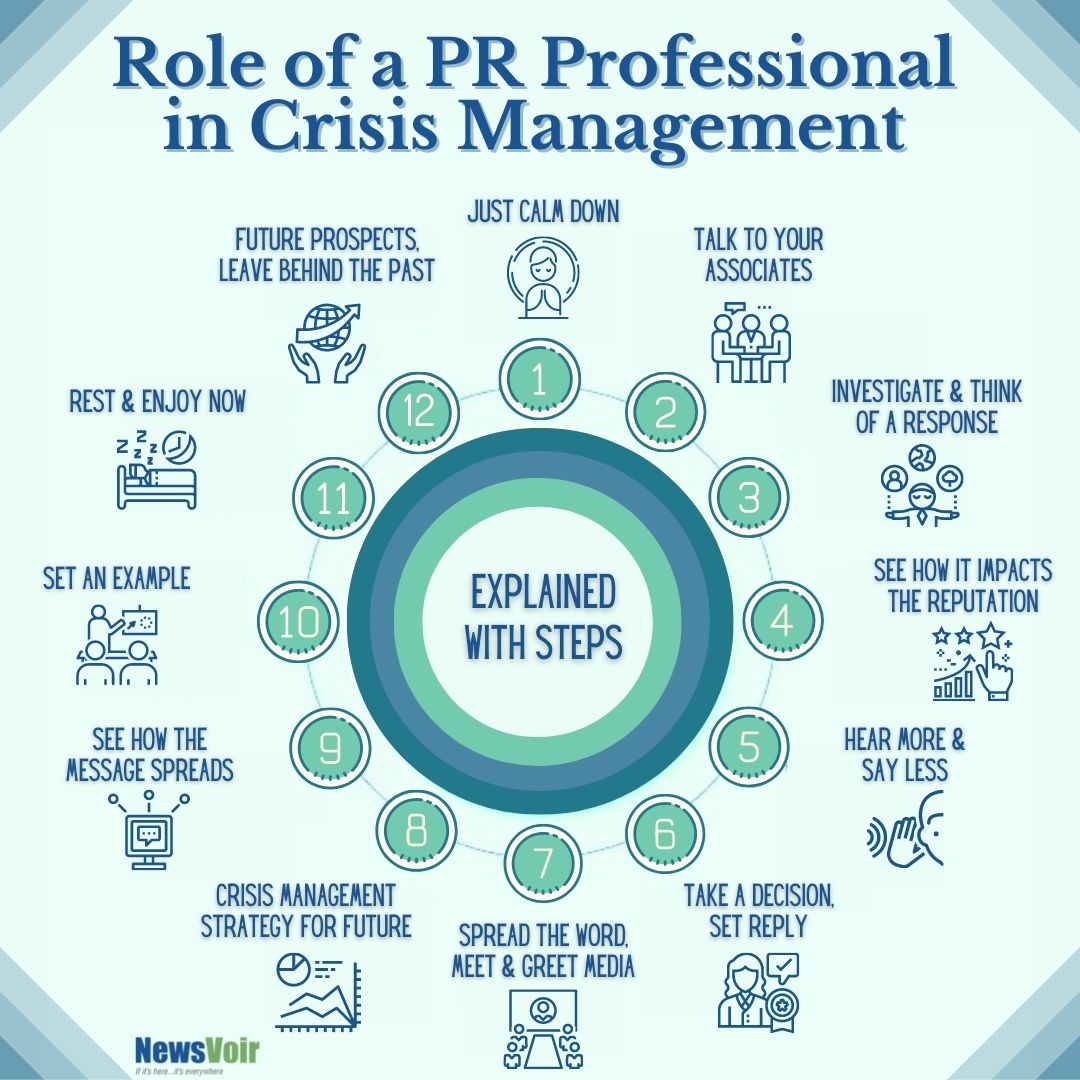Howard Brodie: Leading Public Relations And Crisis Communications Strategist
Howard Brodie stands as a beacon in the realm of public relations and crisis communications. With an illustrious career spanning decades, he has emerged as a leading strategist, guiding organizations through the treacherous storms of reputational crises and propelling them towards success.
Editor's Notes: "Howard Brodie: Leading Public Relations And Crisis Communications Strategist" have published today date". As the complexities of modern communication continue to evolve, it is imperative for businesses and individuals to navigate the ever-changing landscape effectively. This guide delves into the strategies and expertise of Howard Brodie, empowering readers with invaluable insights to safeguard their reputation and achieve their communication goals.
Through diligent analysis and comprehensive research, we have compiled this guide to serve as a valuable resource for anyone seeking to enhance their understanding of public relations and crisis communications. Whether you are a seasoned professional or just starting out, the insights shared here will undoubtedly elevate your expertise and empower you to make informed decisions.
Key Takeaways:
| Howard Brodie: Leading Public Relations And Crisis Communications Strategist | |
|---|---|
| Expertise | Public relations, crisis communications, media relations, reputation management |
| Experience | Decades of experience in various industries, including technology, healthcare, and finance |
| Recognition | Numerous awards and accolades for his work in public relations and crisis communications |
| Approach | Collaborative, proactive, and results-oriented, emphasizing transparency and authenticity |
Main Article Topics:
- The Role of Public Relations and Crisis Communications in Today's Business Environment
- Howard Brodie's Proven Strategies for Effective Crisis Management
- Case Studies of Successful Crisis Communications Campaigns Led by Howard Brodie
- Emerging Trends and Best Practices in Public Relations and Crisis Communications
- Tips for Building a Strong Reputation and Maintaining Public Trust
FAQ
This FAQ section addresses common questions and misconceptions regarding Howard Brodie's expertise in public relations and crisis communications.

PR Crisis Communications Plan | Digital Training Institute - Source www.pinterest.co.uk
Question 1: What is the key to effective public relations?
Successful public relations is built on a foundation of research, strategic planning, and creative storytelling. By developing a deep understanding of clients' objectives, target audiences, and industry landscapes, effective public relations campaigns can resonate with the hearts and minds of the public.
Question 2: How does crisis communications differ from public relations?
While both public relations and crisis communications aim to manage a brand's reputation, crisis communications specifically addresses unexpected events that threaten an organization's stability. Crisis communications require a rapid, strategic response to mitigate negative publicity, protect stakeholder relationships, and preserve organizational integrity.
Question 3: What are the common mistakes in crisis communications?
Common pitfalls in crisis communications include failing to prepare a response plan in advance, neglecting to communicate openly and transparently with stakeholders, and underestimating the need for empathy and sensitivity to those affected by the crisis.
Question 4: How can organizations avoid reputational damage during a crisis?
To safeguard reputation during a crisis, organizations must prioritize immediate response, acknowledge responsibility, and communicate authentically and compassionately. Proactive crisis planning, regular media monitoring, and ongoing stakeholder engagement are crucial for reputation management.
Question 5: What are the best practices for reputation management?
Effective reputation management involves aligning organizational actions with stated values, fostering strong relationships with key stakeholders, and consistently delivering on brand promises. It requires a commitment to transparency, accountability, and ethical conduct.
Question 6: How can organizations measure the effectiveness of their public relations and crisis communications efforts?
Measuring the impact of public relations and crisis communications is essential for continuous improvement. Key performance indicators (KPIs) such as media coverage, social media engagement, website traffic, and stakeholder sentiment analysis can provide valuable insights into campaign effectiveness.
By addressing these key questions and dispelling common misconceptions, this FAQ aims to provide a clear understanding of Howard Brodie's expertise and the vital role of public relations and crisis communications in reputation management.
For more information on public relations and crisis communications strategies, refer to Howard Brodie's comprehensive resources and insights.
Tips
Tip 1: Define the Target Audience
Any communications or crisis response efforts should begin with a clear understanding of who the target audience is. This includes their demographics, interests, and media consumption habits. Once the audience is defined, messages can be tailored to resonate with them effectively.
Tip 2: Monitor Media and Social Channels
Continuously monitoring media and social channels is crucial for staying abreast of the latest developments, identifying potential threats, and tracking the public's perception of an organization. This allows leaders to respond promptly and effectively to emerging issues.
Tip 3: Build Strong Relationships with Media
Nurturing relationships with media professionals is essential for effective communication. Establishing trust and being responsive to media inquiries can help secure favorable coverage and support during a crisis.
Tip 4: Develop a Crisis Management Plan
A comprehensive crisis management plan outlines the steps to be taken in the event of a crisis. It should include communication strategies, crisis response protocols, and a designated crisis management team.
Tip 5: Conduct Crisis Communication Training
Training spokespersons and key personnel on crisis communication best practices ensures that they are equipped to handle media inquiries and communicate effectively during a crisis.
Tip 6: Review Crisis Management Procedures Regularly
Crisis management procedures should be reviewed and updated periodically to ensure they remain effective and aligned with the organization's changing needs and risks. Simulations and mock exercises can also help test the plan's effectiveness.
Howard Brodie: Leading Public Relations And Crisis Communications Strategist
As a distinguished public relations and crisis communications leader, Howard Brodie's expertise transcends diverse sectors, fostering a holistic understanding of the industry's dynamics. His multifaceted experience empowers him to navigate complex communications landscapes, effectively guiding clients through reputational challenges and strategic opportunities.
- Reputation Management: Preserving and enhancing organizational reputations.
- Crisis Communications: Mitigating risks and managing reputational threats during crises.
- Media Relations: Building and maintaining strong relationships with media outlets.
- Public Affairs: Engaging with government agencies and stakeholders.
- Corporate Communications: Communicating effectively with internal and external audiences.
- Digital Communications: Leveraging digital platforms to engage effectively.
These key aspects highlight the multifaceted nature of Howard Brodie's expertise, demonstrating his ability to provide comprehensive public relations and crisis communications counsel. His deep understanding of media dynamics, coupled with his strategic approach to reputation management, enables organizations to navigate complex communications challenges and achieve their desired outcomes.

Public Relations Crisis Management. Explained - Source www.newsvoir.com
Howard Brodie: Leading Public Relations And Crisis Communications Strategist
Howard Brodie is a leading public relations and crisis communications strategist with over 30 years of experience. He is the founder and CEO of Brodie Communications, a global public relations and crisis management firm. Brodie has been recognized as one of the top public relations professionals in the world, and is the recipient of numerous awards, including the Public Relations Society of America's Silver Anvil Award and the Holmes Report's Crisis Manager of the Year award.

Crisis Communications Services Firm - OPR Communications - Source oprusa.com
Brodie's expertise in public relations and crisis communications has been honed through his work with a wide range of clients, including Fortune 500 companies, government agencies, and non-profit organizations. He has successfully managed a variety of high-profile crises, including the Exxon Valdez oil spill, the Tylenol poisonings, and the Volkswagen emissions scandal.
Brodie's success in public relations and crisis communications is due to his ability to develop and implement strategic communications plans that are tailored to the specific needs of his clients. He is a skilled communicator who is able to effectively convey complex messages to a variety of audiences. He is also a strong advocate for his clients, and is not afraid to stand up for what he believes in.
| Howard Brodie's Expertise in Public Relations and Crisis Communications | Examples of Brodie's Work |
|---|---|
| Strategic Communications Planning | Exxon Valdez oil spill |
| Crisis Management | Tylenol poisonings |
| Media Relations | Volkswagen emissions scandal |
Conclusion
Howard Brodie is a leading public relations and crisis communications strategist with over 30 years of experience. He is the founder and CEO of Brodie Communications, a global public relations and crisis management firm. Brodie has been recognized as one of the top public relations professionals in the world, and the recipient of numerous awards for his public relations and crisis management work.
Brodie's expertise in public relations and crisis communications has been honed through his work with a wide range of clients, including Fortune 500 companies, government agencies, and non-profit organizations. He has successfully managed a variety of high-profile crises, including the Exxon Valdez oil spill, the Tylenol poisonings, and the Volkswagen emissions scandal.



